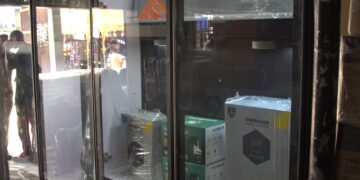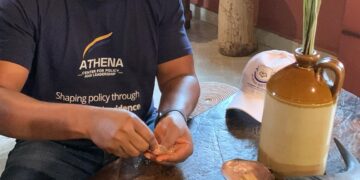The Simon Ekpa Saga: Unpacking the Complexities of Secession, Terrorism, and Global Politics
====================================================================
The recent arrest of Simon Ekpa, a Finnish-Nigerian citizen and leader of a faction of the Indigenous People of Biafra (IPOB), has sparked a flurry of reactions from Nigeria, Finland, and the international community. Ekpa’s detention on terrorism charges has raised questions about secession, violence, and the intricate web of global politics.
A Leader in Exile
————————
Ekpa, who describes himself as the “prime minister of the Biafra Republic Government-in-Exile,” has been a vocal advocate for the independence of Biafra, a region in southeastern Nigeria. His messages, disseminated through social media and Radio Biafra, have been met with both support and criticism.
Terrorism Charges and International Implications
———————————————————
The Finnish authorities’ decision to arrest Ekpa on terrorism charges has significant international implications. Nigeria has been seeking Ekpa’s extradition, accusing him of instigating violence and terrorism in the country. The Finnish government’s actions may be as a nod to Nigeria’s concerns. However, they also raise questions about Ekpa’s rights as a Finnish citizen.
The Complexities of Secession and Identity
—————————————————
The IPOB movement, which Ekpa is a part of, is rooted in a complex history of ethnic and regional tensions in Nigeria. The Biafran War, fought between 1967 and 1970, was a devastating conflict that resulted in the loss of millions of lives. Today, the legacy of that war continues to shape the politics and identity of the region.
Conclusion
———-
The Simon Ekpa saga is a complex and multifaceted issue, involving questions of secession, terrorism in the South Eastern part of Nigeria, and global politics. As the situation unfolds, it’s essential to consider the various perspectives and historical contexts that shape this narrative.
Read:







